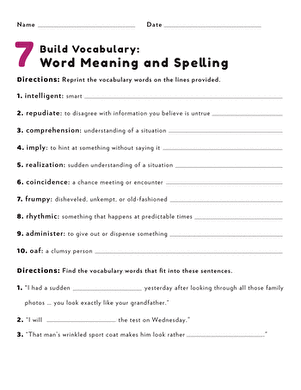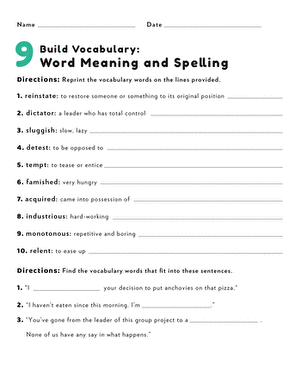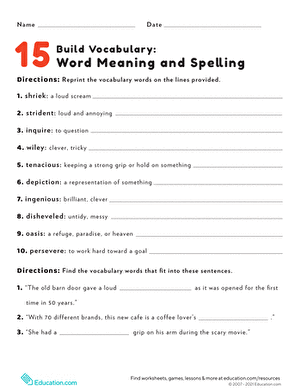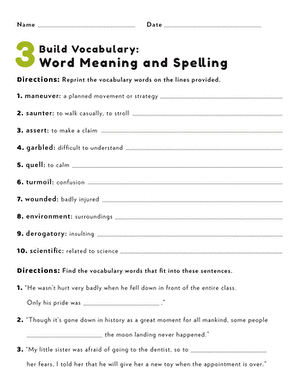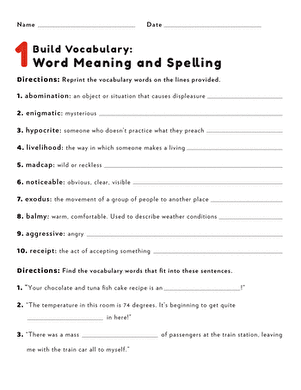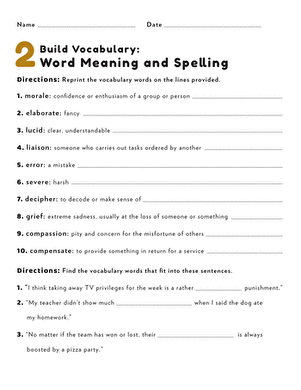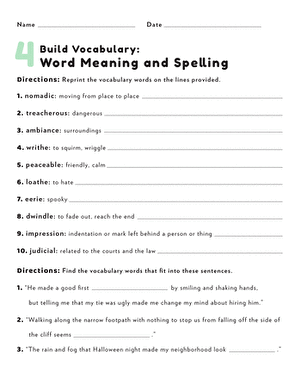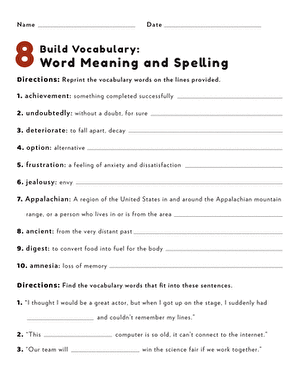Activity
Build Vocabulary by Breaking it Down!
Looking up words in the dictionary is an important habit for fifth graders to get into, but it's not the only way to broaden your child's vocabulary. In fact, there are many clues that can help your child turn into a word detective to find a word's meaning. The origin of a word, as well as its possible derivations, synonyms and antonyms, and interesting idioms associated with it, can all give helpful hints about its meaning. Here's a cheat sheet to help break down words in order to find their meaning:
- Word origin: When you speak English, you are speaking words that have been derived from other languages. For example, pretzel is from the German language, patio is from the Spanish language, and tomato is from the Native American language. However, about 60% of all English words come from Latin or Greek origins so knowledge of these languages would be most helpful in understanding many new words and phrases.
- Derivation: Words are formed from existing words or bases by adding affixes, as singer from sing, by changing the shape of the word or base, as song from sing, or by adding an affix and changing the pronunciation of the word or base, as electricity from electric.
- Synonyms and Antonyms: Because there are so many words in the English language, some words mean the same things as or the opposite of other words. Synonyms are words that have the same meanings. Antonyms are words that have opposite meanings. To help your child remember which is which, point out that synonym and same both begin with the letter s.
- Idioms: An expression whose meanings cannot be inferred from the meanings of the words that make it up, such as, The apple of my eye or Cool as a cucumber.
When your child encounters a new word, encourage them to see if they can determine its meaning by thinking about these aspects of the word. To help encourage this habit, try playing this fun, wordy version of "Go Fish!"



